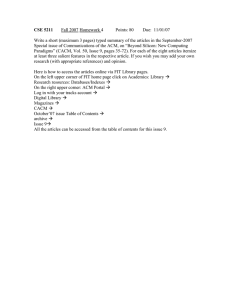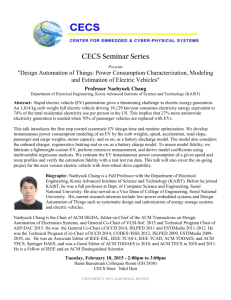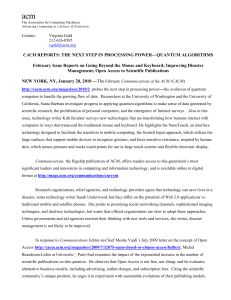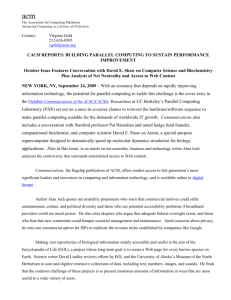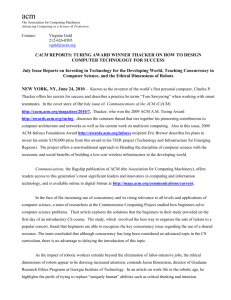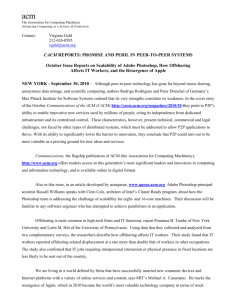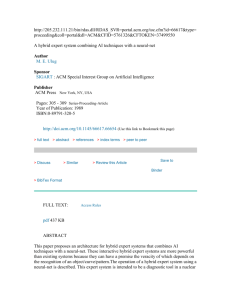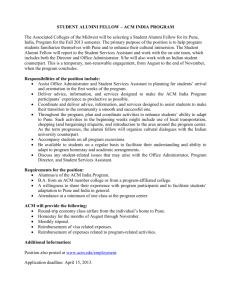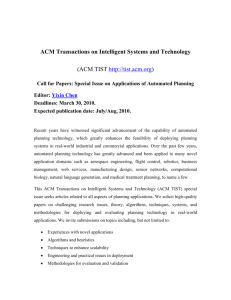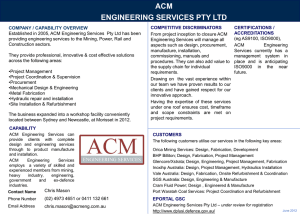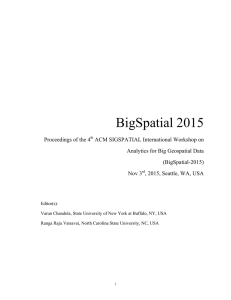Click here to get the file
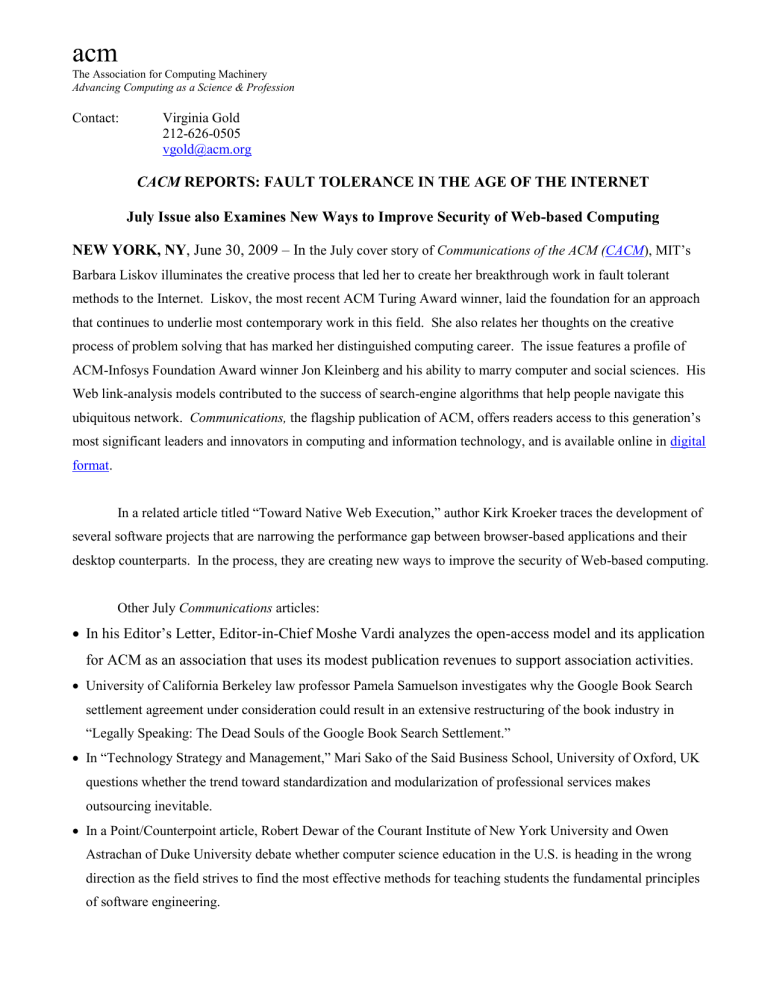
acm
The Association for Computing Machinery
Advancing Computing as a Science & Profession
Contact: Virginia Gold
212-626-0505 vgold@acm.org
CACM REPORTS: FAULT TOLERANCE IN THE AGE OF THE INTERNET
July Issue also Examines New Ways to Improve Security of Web-based Computing
NEW YORK, NY , June 30, 2009 – In t
he July cover story of Communications of the ACM ( CACM ), MIT’s
Barbara Liskov illuminates the creative process that led her to create her breakthrough work in fault tolerant methods to the Internet. Liskov, the most recent ACM Turing Award winner, laid the foundation for an approach that continues to underlie most contemporary work in this field. She also relates her thoughts on the creative process of problem solving that has marked her distinguished computing career. The issue features a profile of
ACM-Infosys Foundation Award winner Jon Kleinberg and his ability to marry computer and social sciences. His
Web link-analysis models contributed to the success of search-engine algorithms that help people navigate this ubiquitous network. Communications, the flagship publication of ACM, offers readers access to this generation’s most significant leaders and innovators in computing and information technology, and is available online in digital format .
In a related article titled “Toward Native Web Execution,” author Kirk Kroeker traces the development of several software projects that are narrowing the performance gap between browser-based applications and their desktop counterparts. In the process, they are creating new ways to improve the security of Web-based computing.
Other July Communications articles:
In his Editor’s Letter, Editor-in-Chief Moshe Vardi analyzes the open-access model and its application for ACM as an association that uses its modest publication revenues to support association activities.
University of California Berkeley law professor Pamela Samuelson investigates why the Google Book Search settlement agreement under consideration could result in an extensive restructuring of the book industry in
“Legally Speaking: The Dead Souls of the Google Book Search Settlement.”
In “Technology Strategy and Management,” Mari Sako of the Said Business School, University of Oxford, UK questions whether the trend toward standardization and modularization of professional services makes outsourcing inevitable.
In a Point/Counterpoint article, Robert Dewar of the Courant Institute of New York University and Owen
Astrachan of Duke University debate whether computer science education in the U.S. is heading in the wrong direction as the field strives to find the most effective methods for teaching students the fundamental principles of software engineering.
“The Five-Minute Rule 20 Years Later (and How Flash Memory Changes the Rules) revisits the famous rule published by Jim Gray and Gianfranco Putzolu for trading off memory and I/O capacity.
Erol Gelenbe of Imperial College London contemplates steps toward self-aware networks to find the best ways to meet their communication needs.
In “Probabilistic Databases: Diamonds in the Dirt,” Nilesh Dalvi of Yahoo! Research and University of
Washington researchers Christopher Re and Dan Suciu ponder the treasures that abound from hidden facts found in imprecise data sets.
At BLOG@CACM , Greg Linden reveals his new approach to reading research papers; Mark Guzdial discusses how to encourage students to write computer programs; and Tessa Lau shares her ideas about the importance of
Web visibility.
For more information on the Communications of the ACM , click on http://cacm.acm.org/
About ACM
ACM, the Association for Computing Machinery www.acm.org
, is the world’s largest educational and scientific computing society, uniting computing educators, researchers and professionals to inspire dialogue, share resources and address the field’s challenges. ACM strengthens the computing profession’s collective voice through strong leadership, promotion of the highest standards, and recognition of technical excellence. ACM supports the professional growth of its members by providing opportunities for life-long learning, career development, and professional networking.
# # #
